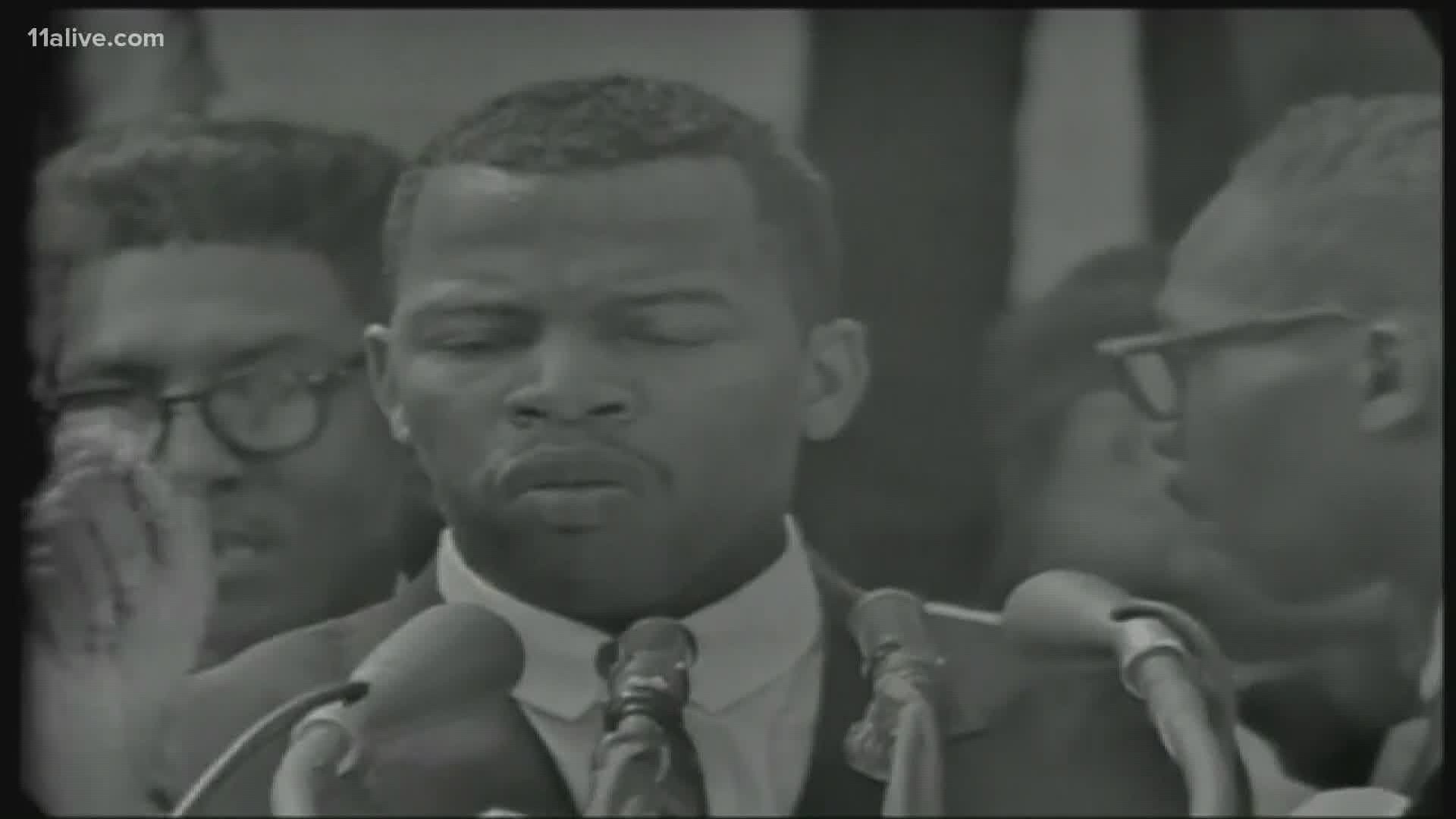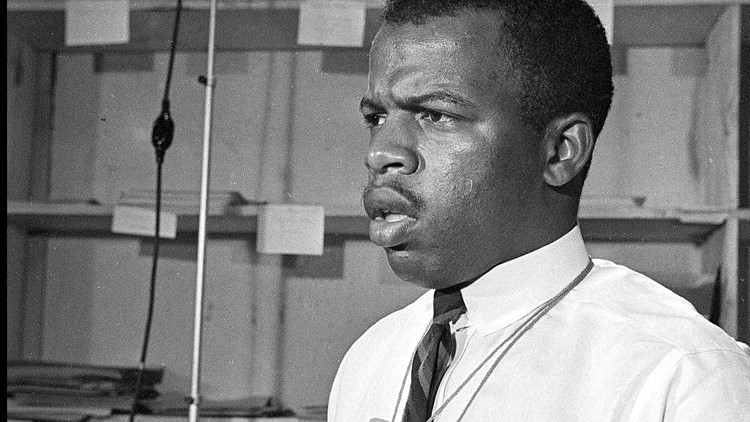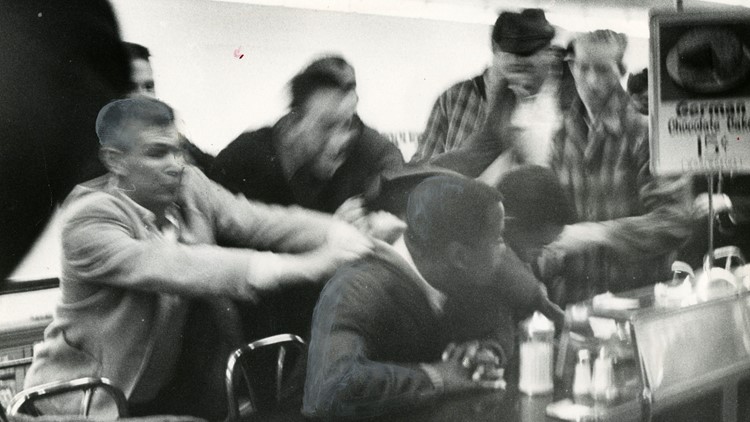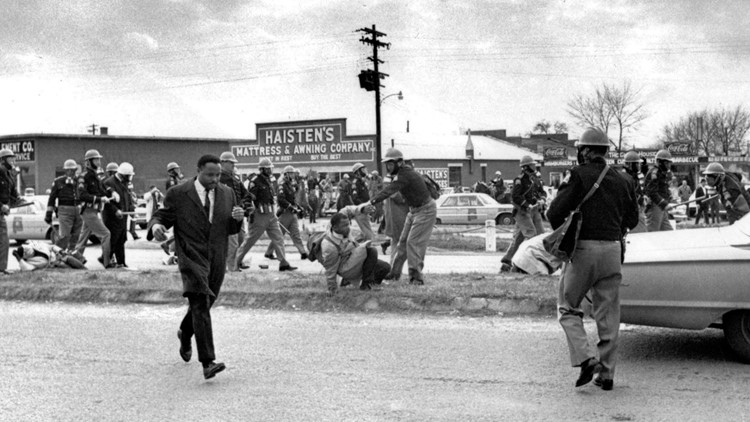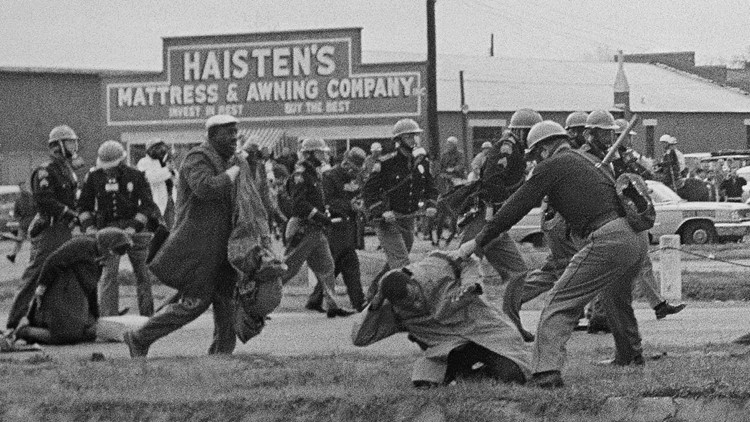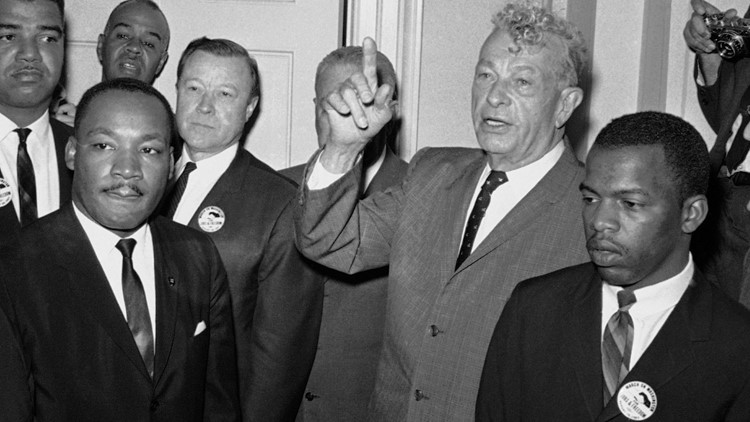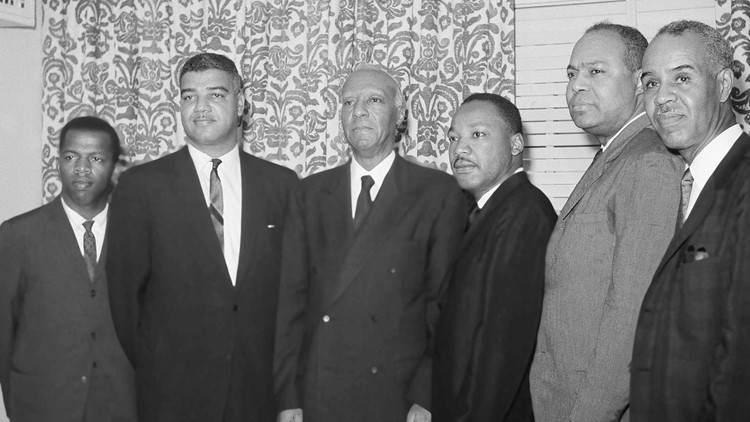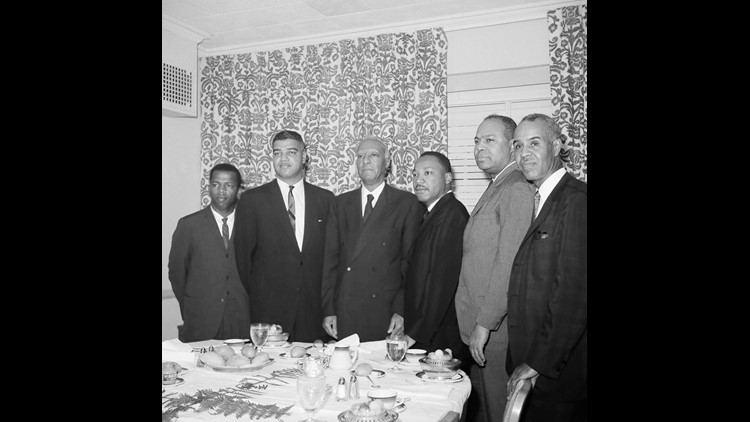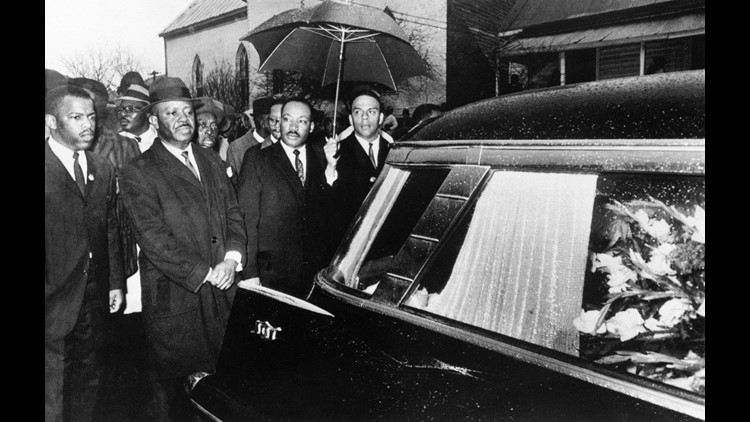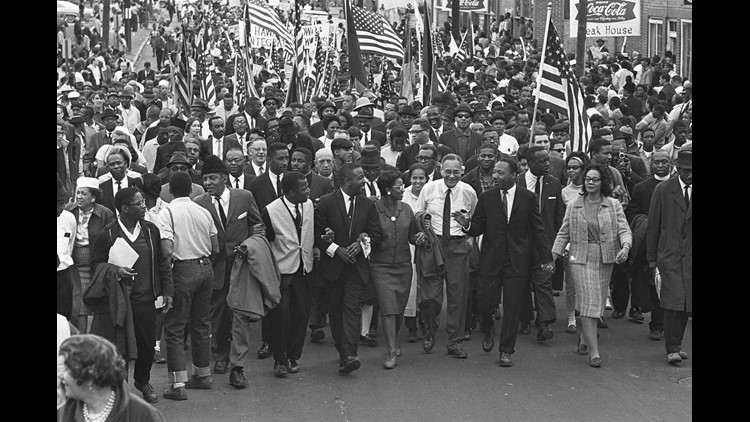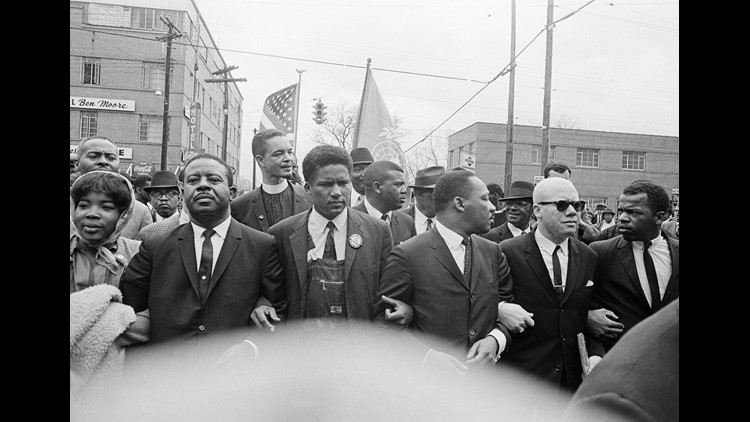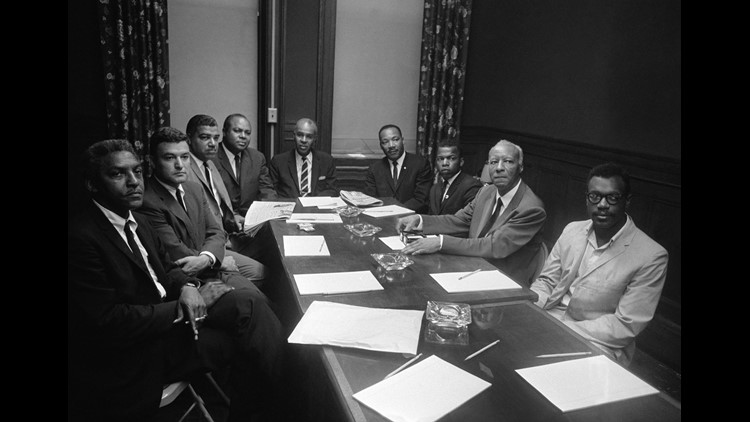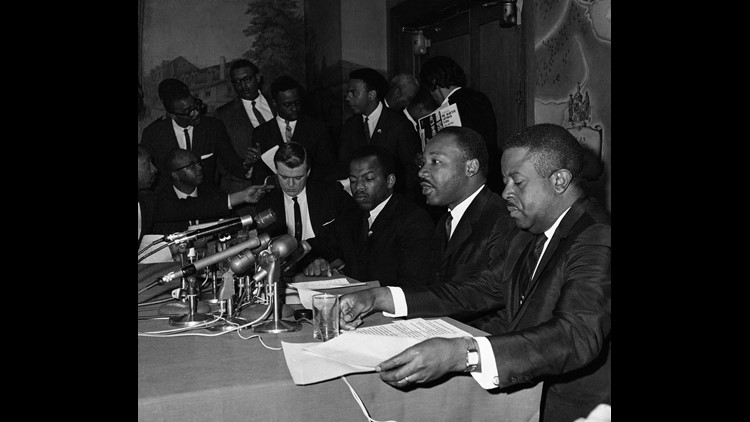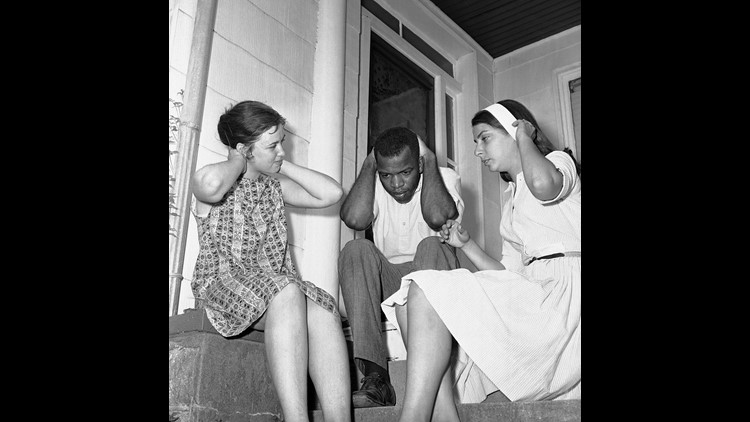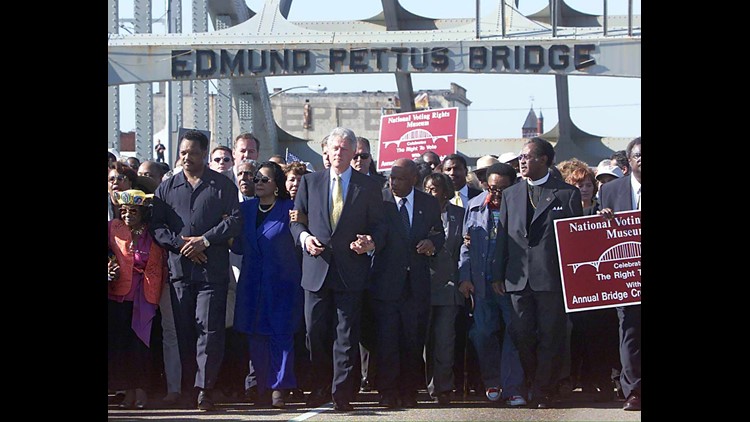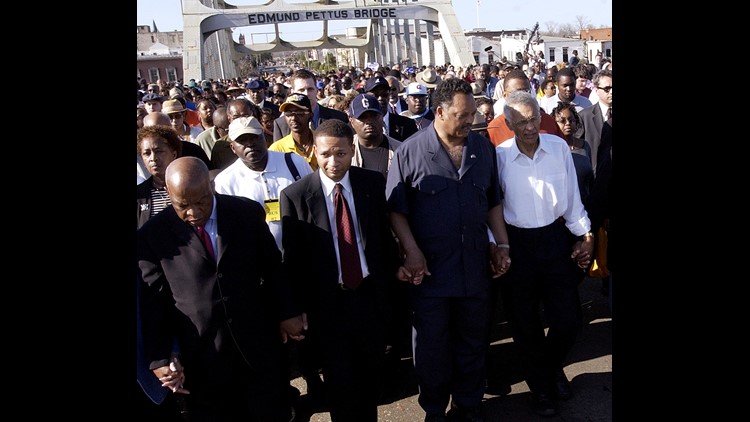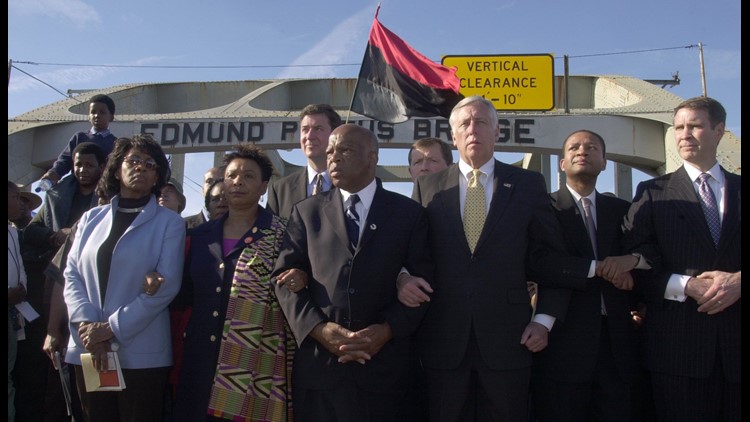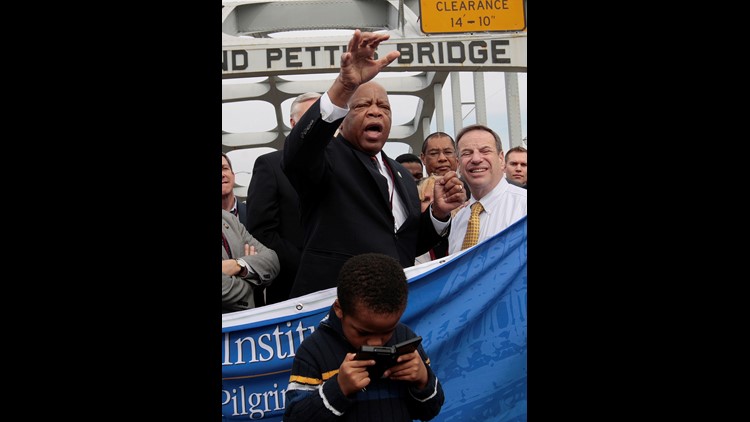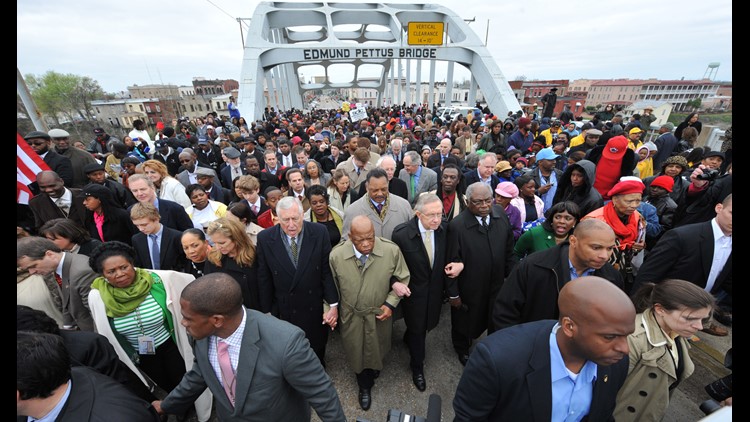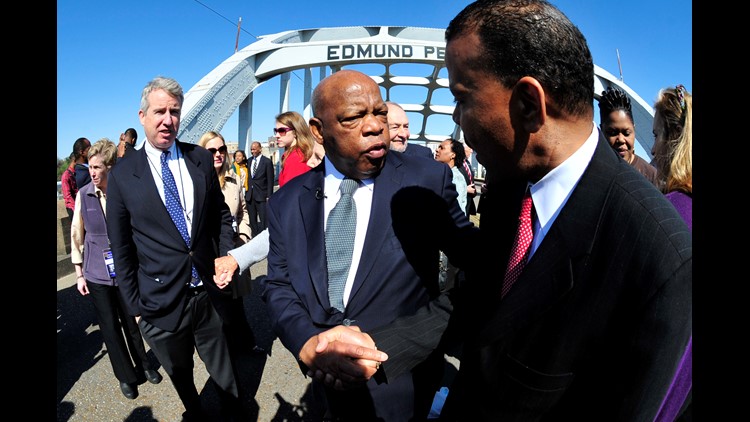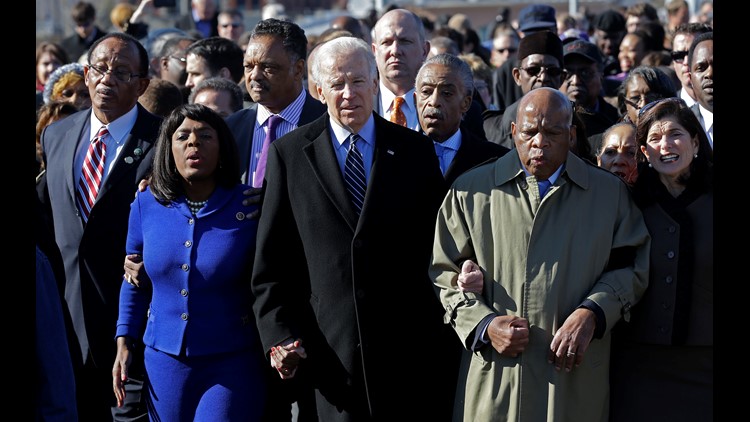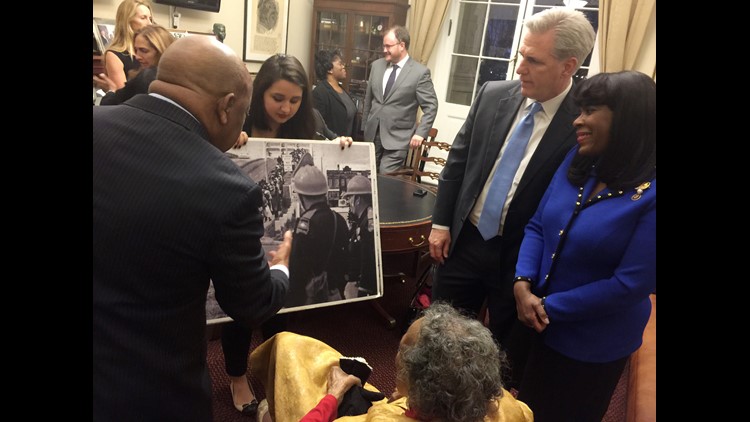ATLANTA — Rep. John Lewis passed away Friday evening in Atlanta. The civil rights leader and Georgia democrat serving the people of the 5th district was 80.
Lewis announced in December that he was diagnosed with Stage IV pancreatic cancer and would “fight it and keep fighting for the Beloved Community,” adding “We still have many bridges to cross.”
At the time, he said this fight for his health would be unlike any fight he’s taken on.
“I have been in some kind of fight – for freedom, equality, basic human rights – for nearly my entire life. I have never faced a fight quite like the one I have now,” he said.
For young John Robert Lewis, the dream inside him would empower him with vision to see beyond unspeakable horrors of present and past, to see the future. Empower him with spirit and courage to challenge his times, and change history. The tender-hearted and resourceful child was born on a farm outside Troy, Alabama in 1940.
“Working in the fields, my mother would say, ‘Boy, you’re falling behind, you need to catch up.’ And I said, ‘This is hard work.’ And she would say, ‘Boy, hard work never killed anybody.’ I said, ‘Well, it’s about to kill me.’ So, I learned to work hard. And I’ve been trying to keep up,” he said in a 2015 interview.
The son of sharecroppers, it was at 15 that the dream inside John Lewis ignited into a life-long, life force as he watched the news of the Montgomery Bus Boycott. Feeding on the revolutionary ideas and ideals of Rosa Parks and Martin Luther King, Jr. changed his life.
“Rosa Parks and Dr. King taught me how to get involved. They inspired me… they helped to make me the person that I am today,” Lewis said.
John Lewis, civil rights icon
So, imagine, just imagine the John Lewis of today going back in time to talk to John Lewis at 19 and 20. ‘What a life is ahead of you,’ he would say. ‘You will nearly lose your life – more than once – as a Freedom Rider in 1961. Beaten and left for dead, just for trying to board a Greyhound Bus. And again, marching on a Sunday in Selma in 1965, you will give your blood and nearly your life, to vote.’
"I really thought I was going to die. I thought I saw death. I said to myself, I'm gonna die on this bridge," Lewis said reflecting on that day.

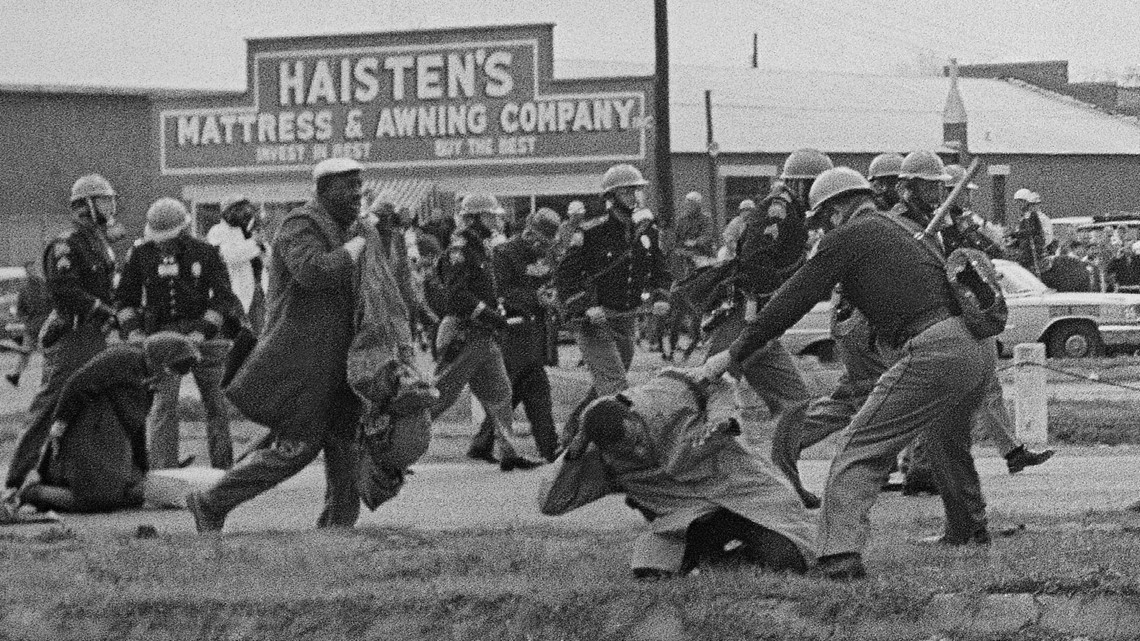
The troubling images shook the nation. They were impossible to ignore. President Lyndon Johnson took action. On August 6, 1965 he signed the Voting Rights Act.
That moment would be a catalyst for the passing of the Voting Rights Act of 1965
The March on Washington was an event he organized with Dr. King and four others on August 28, 1963. Lewis was the youngest speaker that day, the 23-year-old Fisk University graduate represented the Student Nonviolent Coordinating Committee.
“We do not want our freedom gradually, but we want to be free now!” he said to cheers from the crowd.
“We shall splinter the segregated South into a thousand pieces and put them together in the image of God and democracy! We must say, wake up, America! Wake up!”
Looking back decades later, Lewis said of that moment, “I saw this sea of humanity and I just said to myself, ‘this is it; I must give it all I have.’”
From 1966 to 1986, Lewis worked relentlessly in the fields of public service. President Jimmy Carter appointed him to direct more than 250,000 volunteers of ACTION, the federal volunteer agency in 1977.
Atlanta elected him to the City Council in 1981 and in 1986 Lewis took on the toughest political battle of his life, running for Atlanta’s open seat in Congress.
He had tried once before and lost. It was an election few thought he could ever win, and he won.
In the early morning hours after the election, he and his wife Lillian marched through the streets of Atlanta, exuberant.

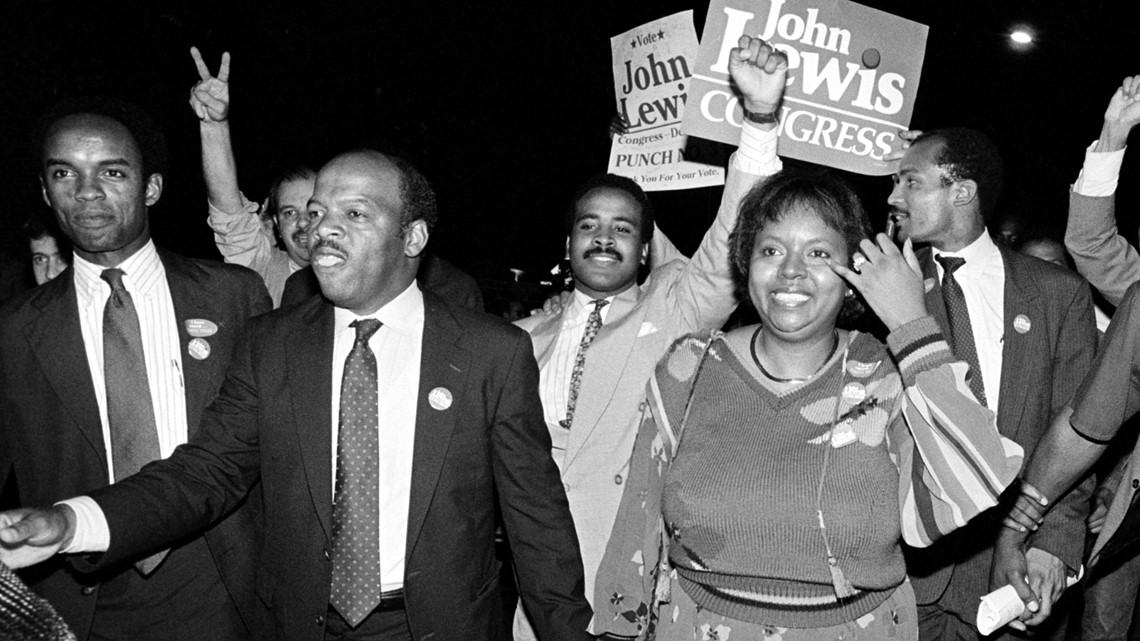
Lewis wrote later in his book ‘Walking With the Wind,’ “I thought to myself that… with all the marches I had ever made, this was the sweetest. This was the best.”
In his victory speech, he said, “The message is clear, now, that we can talk the talk, we can walk the walk!”
As a congressman, he continued his message of how important it is to vote and to protect the right to vote.
“I tell young people all the time...I say you’ve got to get out there and push,” he said in a 2015 interview.
“Your vote is precious, almost sacred. It is the most powerful, non-violent tool we have to create a more perfect union!”
In congress, Lewis was the Senior Chief Deputy Whip for the Democratic Party in leadership in the House, a member of the House Ways & Means Committee, and Chairman of its Subcommittee on Oversight.
He was in Congress when the first black president of the United States was elected. Before President Barack Obama left office, he bestowed Lewis with the highest civilian honor, the Medal of Freedom.

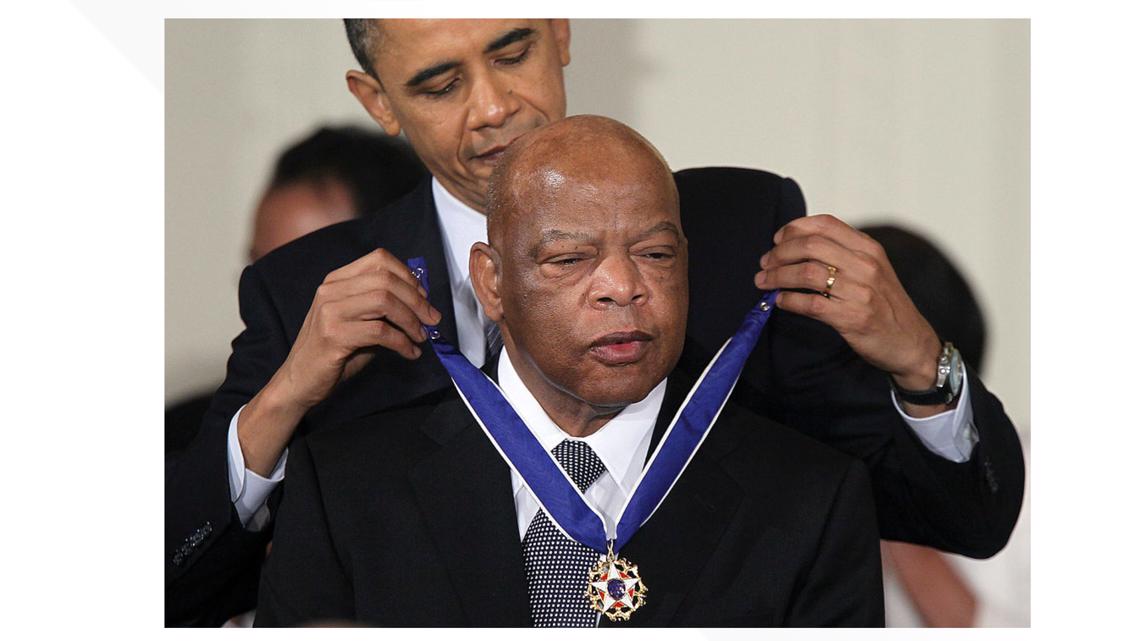
In the president’s speech at the Medal of Freedom Ceremony he said, “generations from now, when parents teach their children what is meant by courage, the story of John Lewis will come to mind. An American who knew that change could not wait for some other person or some other time.”
Lewis spent his life fighting for equality and advocating that the fight was worth it. He was known for telling young people to get into “good trouble.” By his own account, Lewis was arrested more than 40 times for getting into that “good trouble.”
“You, too, can help change our country…. You can help change the world,” John Lewis said.
Lewis leaves behind his son, John Miles. He was preceded in death by his wife Lillian who passed away in 2012.
MORE ON JOHN LEWIS

